第197章 Chapter 1(1)
Of those who lawfully may, and of those who may not, write such histories as this Among other good uses for which I have thought proper to institute these several introductory chapters, I have considered them as a kind of mark or stamp, which may hereafter enable a very indifferent reader to distinguish what is true and genuine in this historic kind of writing, from what is false and counterfeit. Indeed, it seems likely that some such mark may shortly become necessary, since the favourable reception which two or three authors have lately procured for their works of this nature from the public, will probably serve as an encouragement to many others to undertake the like. Thus a swarm of foolish novels and monstrous romances will be produced, either to the great impoverishing of book-sellers, or to the great loss of time and depravation of morals in the reader; nay, often to the spreading of scandal and calumny, and to the prejudice of the characters of many worthy and honest people.
I question not but the ingenious author of the Spectator was principally induced to prefix Greek and Latin mottos to every paper, from the same consideration of guarding against the pursuit of those scribblers, who having no talents of a writer but what is taught by the writing-master, are yet nowise afraid nor ashamed to assume the same titles with the greatest genius, than their good brother in the fable was of braying in the lion's skin.
By the device therefore of his motto, it became impracticable for any man to presume to imitate the Spectators, without understanding at least one sentence in the learned languages. In the same manner I have now secured myself from the imitation of those who are utterly incapable of any degree of reflection, and whose learning is not equal to an essay.
I would not be here understood to insinuate, that the greatest merit of such historical productions can ever lie in these introductory chapters; but, in fact, those parts which contain mere narrative only, afford much more encouragement to the pen of an imitator, than those which are composed of observation and reflection. Here I mean such imitators as Rowe was of Shakespear, or as Horace hints some of the Romans were of Cato, by bare feet and sour faces.
To invent good stories, and to tell them well, are possibly very rare talents, and yet I have observed few persons who have scrupled to aim at both: and if we examine the romances and novels with which the world abounds, I think we may fairly conclude, that most of the authors would not have attempted to show their teeth (if the expression may be allowed me) in any other way of writing; nor could indeed have strung together a dozen sentences on any other subject whatever. Scribimus indocti doctique passim,* may be more truly said of the historian and biographer, than of any other species of writing;for all the arts and sciences (even criticism itself) require some little degree of learning and knowledge. Poetry, indeed, may perhaps be thought an exception; but then it demands numbers, or something like numbers: whereas, to the composition of novels and romances, nothing is necessary but paper, pens, and ink, with the manual capacity of using them. This, I conceive, their productions show to be the opinion of the authors themselves: and this must be the opinion of their readers, if indeed there be any such.
*--Each desperate blockhead dares to write:
Verse is the trade of every living wight.- MR. FRANCISHence we are to derive that universal contempt which the world, who always denominates the whole from the majority, have cast on all historical writers who do not draw their materials from records. And it is the apprehension of this contempt that hath made us so cautiously avoid the term romance, a name with which we might otherwise have been well enough contented. Though, as we hive good authority for all our characters, no less indeed than the vast authentic doomsday-book of nature, as is elsewhere hinted, our labours have sufficient title to the name of history. Certainly they deserve some distinction from those works, which one of the wittiest of men regarded only as proceeding from a pruritus, or indeed rather from a looseness of the brain.
But besides the dishonour which is thus cast on one of the most useful as well as entertaining of all kinds of writing, there is just reason to apprehend, that by encouraging such authors we shall propagate much dishonour of another kind; I mean to the characters of many good and valuable members of society; for the dullest writers, no more than the dullest companions, are always inoffensive. They have both enough of language to be indecent and abusive. And surely if the opinion just above cited be true, we cannot wonder that works so nastily derived should be nasty themselves, or have a tendency to make others so.
To prevent therefore, for the future, such intemperate abuses of leisure, of letters, and of the liberty of the press, especially as the world seems at present to be more than usually threatened with them, I shall here venture to mention some qualifications, every one of which are in a pretty high degree necessary to this order of historians.
The first is, genius, without a full vein of which no study, says Horace, can avail us. By genius I would understand that the power or rather those powers of the mind, which are capable of penetrating into all things within our reach and knowledge, and of distinguishing their essential differences. These are no other than invention and judgment;and they are both called by the collective name of genius, as they are of those gifts of nature which we bring with us into the world.